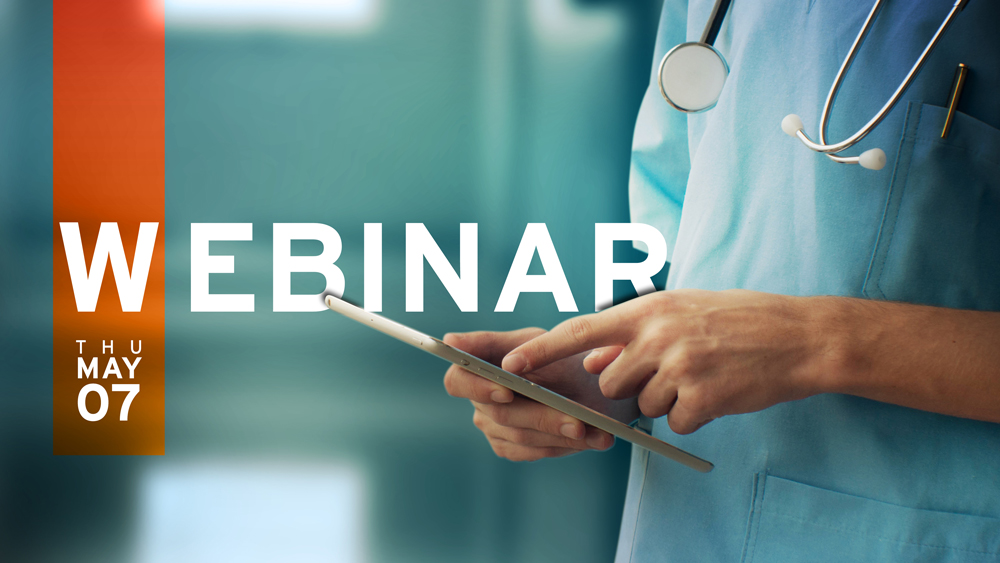AI's role in reducing the impact of future pandemics
As the coronavirus spreads fear and panic across the world, it’s perhaps timely to take a step back and consider the future of healthcare and how AI will help. But first let’s consider that the coverage and spread of the virus shows us precisely just why reliable data is needed to help us cope with new diseases. At time of writing, most official advice on coronavirus is not based on hard data led evidence on how the virus spreads, the best way to contain it, who is most vulnerable, what is the incubation period and so on. Instead we have been left with mostly guesswork and conflicting stories in newspapers.
My colleague wrote this excellent blog on the don'ts of IT in times of crisis, you should check it out to get an overview on what to do and what to avoid.
Imagine instead that an AI platform had been built ready to analyze the breakout of the virus when it was first discovered in Wuhan, China. If algorithms had been prepared earlier to screen those falling ill to an early stage of a new virus, who they were, their movements etc. - we might have gone further in containing the virus some two months ago. Of course, data and privacy are inextricably linked, and societies need to balance the safety and health of all in emergencies against possible infringement of data privacy laws. Careful use of AI and enhanced data security, along with consensual use of tracking apps, could help us in achieve the first and avoid the second – but one feels this is work that needs to be done to prepare for any future pandemic.
The future should give us hope
Even without a global pandemic to worry about, and of course it will pass, AI is increasingly going to pay a large part in providing better, and more cost-effective healthcare in major economies, whatever model of funding is in place. And it’s something not lost on developers and investors looking for the next big opportunity. According to the Financial Times, some 367 AI healthcare US start-ups received around $4bn in funding in 2019. Many of these start-ups are developing AI assisted applications and tools that help with diagnosis and treatment of conditions or allow sensors to be placed onto non-critical patients freeing up a hospital bed.
Real time data from potentially thousands of patients can be put in front of algorithms to spot early signs of deterioration in a patient rather than wait for the patient to turn up in ER. At the same time, the accumulated data from connected patients will be invaluable to create future algorithms and learn more about how diseases behave, and how some people may be more at risk.
How AI in healthcare should help us reduce waste
AI can help us not just with clinical issues in health industry but also in reducing waste and improving efficiencies – the bane of all health systems. Appointments and clinic attendance are a regular bottleneck in delivering efficient care to outpatients. Resources are spent on phone calls, appointment letters and then the routine check in/check out at the appointment. The process has not changed in decades and still clinics suffer from abandoned appointments, which then have to be followed up manually or people turning up at the wrong time. Altogether it’s one of the biggest avoidable costs in healthcare yet the biggest advance has been to send SMS messages to remind patients of upcoming appointments.
However, we have no data on missed appointments, repeat offenders, how far people may have to travel to get to appointments and even if they need to an appointment at all. Many are routine and repeated periodic checks done often to fulfill insurance rules and that have no prior data on the condition of the patient. Again, sensors that can read vital signs may rule out the need for routine appointments and instead recommend appointments if conditions signal risk to the patient. The advice often given to patients is to turn up between appointments if they “feel ill”, resulting in more people in clinics with inaccurate self-diagnosis wasting resources and time.
Clustering of data from patients
Preventative medicine has been talked about for many years, but this has mostly to educate people to change lifestyle, cut down on alcohol, get more exercise, stop smoking etc. But AI will help societies deliver genuine advances in preventative medicine by monitoring data from patients that already have disease or may be at risk of developing diseases. Such data can also be used to discover disease clusters that may develop due to environmental or social conditions. While we know (or think we know), that poor diet or lifestyle choices can increase the risk of life-threatening conditions without AI we know little as to how other factors come into play. For example, a group may use the same public transport networks, live in a certain type of building, perform a certain occupation or share similar activities.
The potential for AI to reveal hitherto hidden health data and patterns is massive, there is just so much we don’t know about what factors contribute to good and poor health. By adopting AI technologies now, we can take a big step forward into better healthcare for all, including dealing with future pandemics.
Learning more about AI
KuppingerCole has an increasing body of research on the impact of AI will have on other sectors and integration with legacy architecture.
Reports include the following:
- Leadership Brief on Explainable AI;
- Assessing the Maturity of Core AI disciplines and
- AI in the Legal Industry plus many more.
You can also contact one of our expert analysts for more specific information on an AI application or trend.


















































